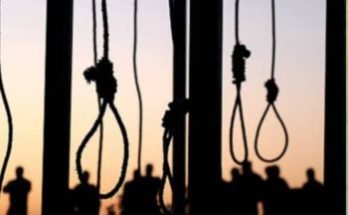The federal government has began moves to implement the new National Cyber Security Policy and Strategy (NCPS) 2021 in its efforts to curb the upsurge in cybercrimes, mostly involving youths. In this report, KEHINDE OSASONA examines the policy.
Cybercrimes are criminal actions committed via the use of information communication technology such as a computer or any other electronic means.
In other words, it is regarded as any fraudulent, dishonest or improper use of communication technology to misrepresent facts in the hopes of gaining an advantage over innocent and unsuspecting users.
Despite the intention behind it, some Nigerians have expressed disappointment that lately, the government and its agency may have deliberately manipulated the provisions of the Cybercrime Act to police social media users and journalists to suppress freedom of expression while abandoning the primary objective of the law.
One of the controversial provisions of the Act is that it empowers the President to designate certain computer systems or networks as critical national information infrastructure and offences committed against a system or network that has been designated critical national infrastructure of Nigeria.
Such offences as reeled out can be punished with death sentence or lesser punishment depending on the scale of the offence.
The offences identified
The law was enacted based on the understanding that threats to information and communication technology were danger to Nigeria’s national security, affecting the country’s “economic, political, and social fabric.”
The Act also ensures the protection of critical national information infrastructure, and promotes cyber security and the protection of computer systems and networks, electronic communications, data and computer programs, intellectual property and privacy rights.
Others are; System interference, intercepting electronic messages and emails electronic money transfers, tampering with critical Infrastructure, wilful misdirection of electronic messages, unlawful interceptions, computer related forgery, computer related fraud, theft of electronic devices, unauthorised modification of computer systems, network data and system interference, electronic signatures, reporting of cyber threats, identity theft and impersonation, child pornography and related offences, cyberstalking, cybersquatting, racist and xenophobic offences, attempt, conspiracy, aiding and abetting, importation and fabrication of E-Tools, breach of confidence by service providers, manipulation of ATM/POS Terminals, phishing and spamming, spreading of computer virus, electronic cards related fraud, dealing in card of another, purchase or sale of card of another, use of fraudulent device or attached e-mails and website, interception of electronic communications and obstruction and refusal to release information.
The question, however, has been whether or not the new move, if implemented would help in salvaging the situation.
Implementation of Act
When in 2017 President of the Information Technology System and Security Professionals (ITSSP), Mr Rogba Adeoye, called for proper implementation of the Cyber Crime Act 2015, he particularly harped on the fact that a lot of work should be done regarding the activities of the Council of Advisers on Cybercrime.
Adeoye noted that proper implementation of the Act would go a long way in curbing cybercrime which has funds for the implementation of the objectives of the cybercrime Act.
According to him, though government had constituted Advisers of the Cybercrime Act, the problem remained who keeps them on their toes, their assignments and how they intend to perform their duties.
“There is the need to have experts to be at the helms of affairs, so as not to allow quacks to take over the fight against cybercrimes.
“Leaving the fight in the hands of quacks will give room for funds to be taken out of the system. There should also be a place where people could go to seek redress, should they have any cyber issue complaints,” he said.
Govt’s commitment
While demonstrating that it would walk the talk, an Inter-Ministerial Committee managed by the office of the National Security Adviser (NSA), Maj. Gen. Babagana Monguno (retd.), had in 2015 produced a National Cyber Security Policy and Strategy document which was subsequently endorsed by the Nigerian government.
The policy was developed based on the understanding that threats to information and communication technology are a danger to Nigeria’s national security, affecting the country’s “economic, political, and social fabric.”
Fast forward to 2021, the federal government had swung into action and has begun moves to implement the new National Cyber security Policy and Strategy (NCPS) 2021.
As part of the arrangement, cyber security sensitisation workshops were put in place across telecommunications, defence and security, education, finance and capital market, energy, professional organisations, the private sector and judiciary sectors in the country.
While announcing plans for the implementation at the end of the 7th Meeting of the Cybercrime Advisory Council convened by Monguno, he observed that the nation has battled an upsurge in cybercrimes, noting that the situation has led to the arrest and conviction of over 1,200 Nigerian youths.
He said; “The 7th Meeting of the National Advisory Council reviewed emerging risks in cyberspace and discussed modalities to facilitate and strengthen ongoing initiatives towards the implementation of the National Cybersecurity Policy and Strategy 2021.
“The Office of the NSA updated the council on the identification, designation and protection of critical national information infrastructure as specified in the Cybercrime (Prohibition, Protection etc) Act 2015.
“The workshop series will provide information, strengthen cyber security governance and coordination, and build the capacity of relevant stakeholders on their responsibilities under the National Cyber Security Policy and Strategy.
“The workshops will also sensitise stakeholders on the expected deliverables, projected timelines and key performance indicators as required in the action plan for the strategy implementation,” he stated.
However, following President Muhammadu Buhari’s the launch of the National Cyber Security Policy and Strategy on February 23, 2021 by the implementation and review of the maiden National Cyber Security Policy and Strategy of the policy document was widely disseminated to federal ministries, departments and agencies, private organisations and relevant stakeholders for implementation.
The Budapest Convention
One year after, the NSA announced the ratification of its membership of the Budapest Convention, aimed at enhancing international cooperation in the fight against cybercrime.
In a statement by the Head of Strategic Communication, Office of the NSA), Mr Zakari Usman, in Abuja, he said officially ratified its membership of the convention on July 6, after it met the needed requirements.
The development, according to him, followed the approval of the Federal Executive Council (FEC) on June 29, and the signing of the instrument of accession by President Buhari as well as transmission to the Council of Europe on July 6.
However, despite the ratification and success recorded in curbing cybercrimes plaguing the social media space, condemnation has continued to trail the move.
It’s attempt to silence opposition – Rights lawyer
Speaking on the development, a Human Rights Lawyer and Managing Partner, Law Corridor, Barr. Pelumi Olajengbesi, expressed regrets that government merely attempted to silence opposition views in the online media through arbitrary interpretation and abuse of the Cybercrimes (Prohibition and Prevention) Act, 2015, particularly Section 24 which addresses offensive and annoying statements on the internet otherwise known as cyber stalking.
He argued that several journalists, bloggers and individuals have been arrested in this regard, stating that: “Stories, articles and expressions published online have been deemed offensive, insulting or annoying with actionable consequences under the said section even when the stories are factual.
“While some stories published through traditional media outlets, print and electronic, have attacked the same government but were never sanctioned by the government. However, upon being broadcasted or published through online platforms attract sanctions.
“The government considers these reports offensive and libellous because of the rising influence of online platforms in Nigeria as major sources of information dissemination,” he said.
Olajengbesi, who spoke in Abuja at the Nigeria Union of Journalists (NUJ) Correspondents’ Chapel end-of-year symposium with the theme: ‘Understanding the Cybercrime Act 2015, The Media Ethics Perspective,’ stressed the need to understand the scopes of cybercrime in order to engage the authorities appropriately.
The guest speaker insisted that crucial stakeholders must be given space to thrive in order to play their role as enshrined by relevant sections of the constitution.
Govt’s accountability
Also speaking, Global Rights Representative, Edosa Oviawe, noted that cyberspace had faced multiple challenges lately owing to government regulations.
Nigeria, he noted, has performed badly in the press freedom index placing it second behind Ghana.
“I salute the media for holding government accountable on governance in the face of stifling of the media space, incessant attacks, arrests and detention of journalists by State elements,” he stated.




